|
시장보고서
상품코드
1573690
물 글리콜 기반 전기 구동 장치 시장 : 기회, 성장 동인, 산업 동향 분석 및 예측(2024-2032년)Water Glycol Based Electric Drive Unit (EDU) Market, Opportunity, Growth Drivers, Industry Trend Analysis and Forecast, 2024-2032 |
||||||
세계 물 글리콜 기반 전기 구동 장치 시장은 2023년 78억 달러로 평가되었고, 2024년부터 2032년까지 CAGR은 19.6%로 강력한 성장 궤도를 보일 것으로 예상됩니다.
이 같은 급격한 성장은 각국 정부와 정책 입안자들의 재정적 인센티브 증가와 인프라를 지원하기 위한 대규모 투자에 힘입은 바 큽니다. 이러한 조치는 환경 지속가능성에 대한 시급한 우려와 청정 교통수단으로의 전환에 대한 전략적 대응입니다.
엄격한 환경 규제와 전기자동차(EV)에 대한 정부의 인센티브가 결합되어 전기차 산업의 성장을 가속하고 있습니다. 이러한 추세의 중심에는 이산화탄소 배출을 억제하고 지속 가능한 교통수단을 지원하기 위한 정책이 있습니다. 또한, 전기차 인프라의 급속한 발전은 기존 연료 가격 상승에 대한 소비자의 불안감과 함께 전기차 보급을 가속화하고 있습니다. 이에 따라 고효율의 물-글리콜 기반 전기 구동 장치에 대한 수요가 증가하고 있습니다.
시장은 차량 유형을 BEV, HEV, PHEV 카테고리로 구분합니다. 특히 BEV용 오일 기반 전기 구동 장치 시장은 2032년까지 171억 달러를 넘어설 것으로 예상되며, BEV 채택이 급증하는 주요 요인으로는 에너지 저장을 중심으로 한 배터리 성능의 지속적인 향상과 충전 인프라의 확대가 있습니다.
판매 채널에 따라 시장은 OEM과 애프터마켓 부문으로 나뉘며, OEM 부문은 2032년까지 19.7% 이상의 CAGR을 나타낼 것으로 예상됩니다. 선도적 인 OEM은 제품 설계 및 개발에서 선구적인 혁신을 주도하고 있습니다. 그들은 전기자동차(EV)의 성능, 효율성, 신뢰성을 향상시키는 최첨단 솔루션을 개발하기 위해 연구개발에 많은 투자를 하고 있습니다.
아시아태평양의 물 글리콜 기반 전기 구동 장치 시장은 2032년까지 255억 달러에 달할 것으로 예상됩니다. 중국, 인도, 인도네시아와 같은 국가에서는 자동차 제조업체들이 전기 구동 장치 부품의 연구개발에 많은 투자를 하고 있습니다. 동시에 이들 신흥 경제 국가들은 필수 인프라 구축에 우선순위를 두고 있습니다. 경쟁 무대에는 베테랑 OEM과 신생 신생 기업이 혼합되어 있으며, 둘 다 전기 구동 장치 기술의 발전을 촉진하고 있습니다.
목차
제1장 조사 방법과 조사 범위
제2장 주요 요약
제3장 업계 인사이트
- 생태계 분석
- 규제 상황
- 업계에 대한 영향요인
- 성장 촉진요인
- 업계의 잠재적 리스크&과제
- 성장 가능성 분석
- Porter's Five Forces 분석
- PESTEL 분석
제4장 경쟁 구도
- 전략적 전망
- 혁신과 지속가능성 전망
제5장 시장 규모와 예측 : 차량 유형별, 2021년-2032년
- 주요 동향
- BEV
- HEV
- PHEV
제6장 시장 규모와 예측 : 판매채널별, 2021년-2032년
- 주요 동향
- OEM
- 애프터마켓
제7장 시장 규모와 예측 : 지역별, 2021년-2032년
- 주요 동향
- 북미
- 미국
- 캐나다
- 멕시코
- 유럽
- 노르웨이
- 독일
- 프랑스
- 네덜란드
- 영국
- 오스트리아
- 벨기에
- 덴마크
- 핀란드
- 아일랜드
- 아시아태평양
- 중국
- 인도
- 일본
- 한국
- 홍콩
- 뉴질랜드
- 호주
- 중동 및 아프리카
- 사우디아라비아
- 아랍에미리트(UAE)
- 남아프리카공화국
- 라틴아메리카
- 브라질
- 아르헨티나
제8장 기업 개요
- Aisin Corporation
- AVL
- BorgWarner Inc.
- C.F.R. Srl.
- DANA TM4 INC.
- ElringKlinger AG
- Equipmake
- FRIWO Geratebau GmbH
- GKN Automotive Limited
- hofer powertrain
- Integral Powertrain Limited
- LG Magna e-Powertrain
- Magna International Inc.
- Magnetic Systems Technology Limited
- MAHLE Polska Sp. z o.o
- Nidec Corporation
- Punch Powertrain nv
- Robert Bosch GmbH
- Saietta Group
- Schaeffler AG
- Vitesco Technologies GmbH
- Voith GmbH and Co. KGaA
- ZF Friedrichshafen AG
- Zytek Automotive Ltd
The Global Water Glycol-Based Electric Drive Units Market was valued at USD 7.8 billion in 2023 and projections indicate a robust growth trajectory, with an anticipated CAGR of 19.6% from 2024 to 2032. This surge can be largely attributed to heightened financial incentives and significant investments in supporting infrastructure, actions championed by global governments and policymakers. These measures are strategic responses to pressing concerns about environmental sustainability and the global pivot towards cleaner transportation methods.
Stringent environmental regulations, coupled with government incentives for electric vehicles (EVs), are catalyzing the industry growth. Central to this trend are policies aimed at curbing carbon emissions and championing sustainable transportation. Furthermore, the swift evolution of EV infrastructure, alongside consumer apprehensions about escalating conventional fuel prices, is amplifying EV adoption. This, in turn, is driving a pronounced demand for high-efficiency water glycol-based electric drive units.
The overall industry is divided into vehicle type, sales channel, and region.
The market segments vehicle types into BEV, HEV, and PHEV categories. Notably, the BEV oil-based electric drive unit market is on track to exceed USD 17.1 billion by 2032. Key drivers for the surging adoption of BEVs include ongoing enhancements in battery capabilities, notably in energy storage, and the broadening of charging infrastructure.
Sales channels bifurcate the market into OEM and aftermarket segments. The OEM segment is poised for growth, with projections indicating a CAGR of over 19.7% through 2032. Leading the charge, OEMs are pioneering innovations in product design and development. They are channeling substantial investments into research and development, crafting state-of-the-art solutions that elevate the performance, efficiency, and reliability of electric vehicles (EVs).
Asia Pacific water glycol-based electric drive units market will eclipse USD 25.5 billion by 2032. In nations like China, India, and Indonesia, automakers are heavily investing in R&D for electric drive unit components. Concurrently, these economies are prioritizing the development of essential infrastructure. The competitive arena showcases a mix of seasoned OEMs and budding startups, both propelling advancements in electric drive unit technology.
Table of Contents
Chapter 1 Methodology and Scope
- 1.1 Market definitions
- 1.2 Base estimates and calculations
- 1.3 Forecast calculation
- 1.4 Data sources
- 1.4.1 Primary
- 1.4.2 Secondary
- 1.4.2.1 Paid
- 1.4.2.2 Public
Chapter 2 Executive Summary
- 2.1 Industry 360° synopsis, 2021 - 2032
Chapter 3 Industry Insights
- 3.1 Industry ecosystem analysis
- 3.2 Regulatory landscape
- 3.3 Industry impact forces
- 3.3.1 Growth drivers
- 3.3.2 Industry pitfalls and challenges
- 3.4 Growth potential analysis
- 3.5 Porter's analysis
- 3.5.1 Bargaining power of suppliers
- 3.5.2 Bargaining power of buyers
- 3.5.3 Threat of new entrants
- 3.5.4 Threat of substitutes
- 3.6 PESTEL analysis
Chapter 4 Competitive landscape, 2024
- 4.1 Strategic outlook
- 4.2 Innovation and sustainability landscape
Chapter 5 Market Size and Forecast, By Vehicle Type, 2021 - 2032 (Units, USD Billion)
- 5.1 Key trends
- 5.2 BEV
- 5.3 HEV
- 5.4 PHEV
Chapter 6 Market Size and Forecast, By Sales Channel, 2021 - 2032 (Units, USD Billion)
- 6.1 Key trends
- 6.2 OEM
- 6.3 Aftermarket
Chapter 7 Market Size and Forecast, By Region, 2021 - 2032 (Units, USD Billion)
- 7.1 Key trends
- 7.2 North America
- 7.2.1 U.S.
- 7.2.2 Canada
- 7.2.3 Mexico
- 7.3 Europe
- 7.3.1 Norway
- 7.3.2 Germany
- 7.3.3 France
- 7.3.4 Netherlands
- 7.3.5 UK
- 7.3.6 Austria
- 7.3.7 Belgium
- 7.3.8 Denmark
- 7.3.9 Finland
- 7.3.10 Ireland
- 7.4 Asia Pacific
- 7.4.1 China
- 7.4.2 India
- 7.4.3 Japan
- 7.4.4 South Korea
- 7.4.5 Hong Kong
- 7.4.6 New Zealand
- 7.4.7 Australia
- 7.5 Middle East and Africa
- 7.5.1 Saudi Arabia
- 7.5.2 UAE
- 7.5.3 South Africa
- 7.6 Latin America
- 7.6.1 Brazil
- 7.6.2 Argentina
Chapter 8 Company Profiles
- 8.1 Aisin Corporation
- 8.2 AVL
- 8.3 BorgWarner Inc.
- 8.4 C.F.R. Srl.
- 8.5 DANA TM4 INC.
- 8.6 ElringKlinger AG
- 8.7 Equipmake
- 8.8 FRIWO Geratebau GmbH
- 8.9 GKN Automotive Limited
- 8.10 hofer powertrain
- 8.11 Integral Powertrain Limited
- 8.12 LG Magna e-Powertrain
- 8.13 Magna International Inc.
- 8.14 Magnetic Systems Technology Limited
- 8.15 MAHLE Polska Sp. z o.o
- 8.16 Nidec Corporation
- 8.17 Punch Powertrain nv
- 8.18 Robert Bosch GmbH
- 8.19 Saietta Group
- 8.20 Schaeffler AG
- 8.21 Vitesco Technologies GmbH
- 8.22 Voith GmbH and Co. KGaA
- 8.23 ZF Friedrichshafen AG
- 8.24 Zytek Automotive Ltd



















